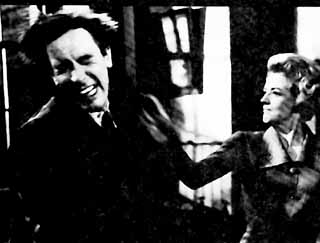The Prime of Miss Jean Brodie
Dame Maggie Smith won an Oscar for her work here as a flinty, flamboyant Scottish schoolmarm who inspires a dangerous hero worship in her young students.
Reviewed by Kimberley Jones, Fri., March 8, 2002

The Prime of Miss Jean Brodie (1969)
D: Ronald Neame; with Maggie Smith, Gordon Jackson, Robert Stephens, Pamela Franklin, Celia Johnson, Jane Carr. "Little girls, I am in the business of putting old heads on young shoulders, and all my pupils are the crème de la crème. Give me a girl at an impressionable age and she is mine for life." A splash of exoticism at the conservative Marcia Blaine's School for Young Girls in 1930s Edinburgh, Miss Jean Brodie (Smith) is very good at making her students -- the "Brodie girls" -- hers for life. Miss Brodie relates to her students' art history with the same delicious detail as she does her love affairs. She moves with a swish, she speaks with a trill: In short, she's the romantic ideal for a classroom of eager young women. Miss Brodie does nothing to dissuade the hero worship; she encourages it, actually, to the disapproval of the crotchety headmistress (Johnson) and the bemusement of her sometime-lover, art teacher Teddy Lloyd (Stephens, Smith's then-husband). She even goes so far as to nudge one of her pupils, Jenny, a red-haired beauty just like Miss Brodie, into posing for Teddy; she's keen for Jenny to fulfill the bohemian lifestyle she has passed over. The plan backfires, however, when the mousy but crafty Sandy (Franklin) takes Teddy as her lover instead -- a reaction to years of being pigeonholed the "dependable" one. The situation falls apart further when another Brodie girl foolishly runs off to the Spanish Civil War at Miss Brodie's suggestion and ends up getting killed. Disillusioned and smarting from Teddy's rejection of her, Sandy turns the tables on her one-time hero, leading up to a bravura showdown between Miss Brodie and Sandy, the teacher vs. the prodigy-turned-turncoat. (One of the choicest parts is a wrecked Miss Brodie screeching "Assassin! Assassin!" at Sandy as she walks away.) Smith won an Oscar for her role here, and she is marvelous as the flinty, flamboyant schoolteacher (though it should be noted, the part hasn't aged quite as well as the actress; there's a hint of camp here that dilutes the dramatic impact, but certainly ratchets up the fun factor). Franklin, too, does a fine job as the little mouse that roared. Together, they form an appealingly complex dynamic -- a "she said, she said" scenario in which to the victor go no spoils, just regret and the smart sting of betrayal.










